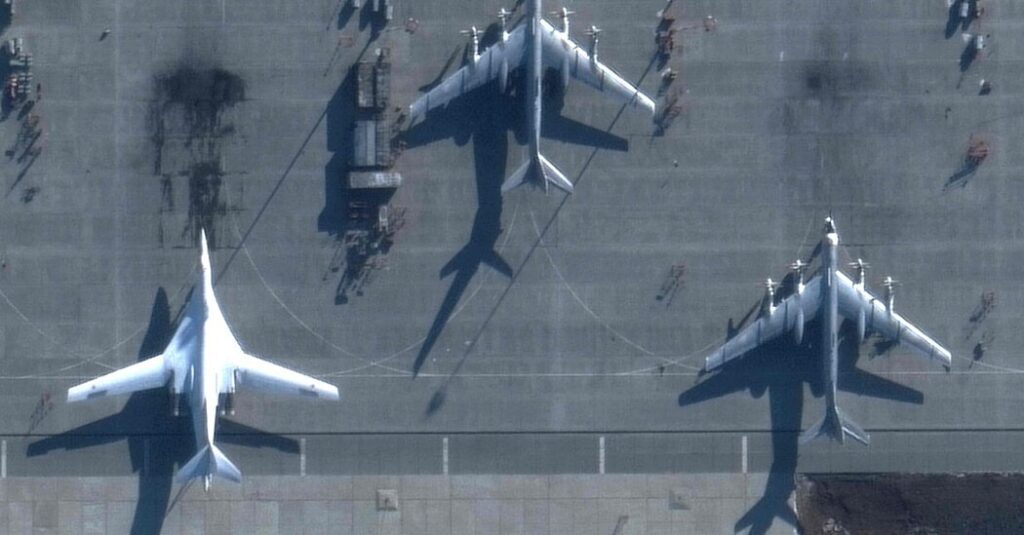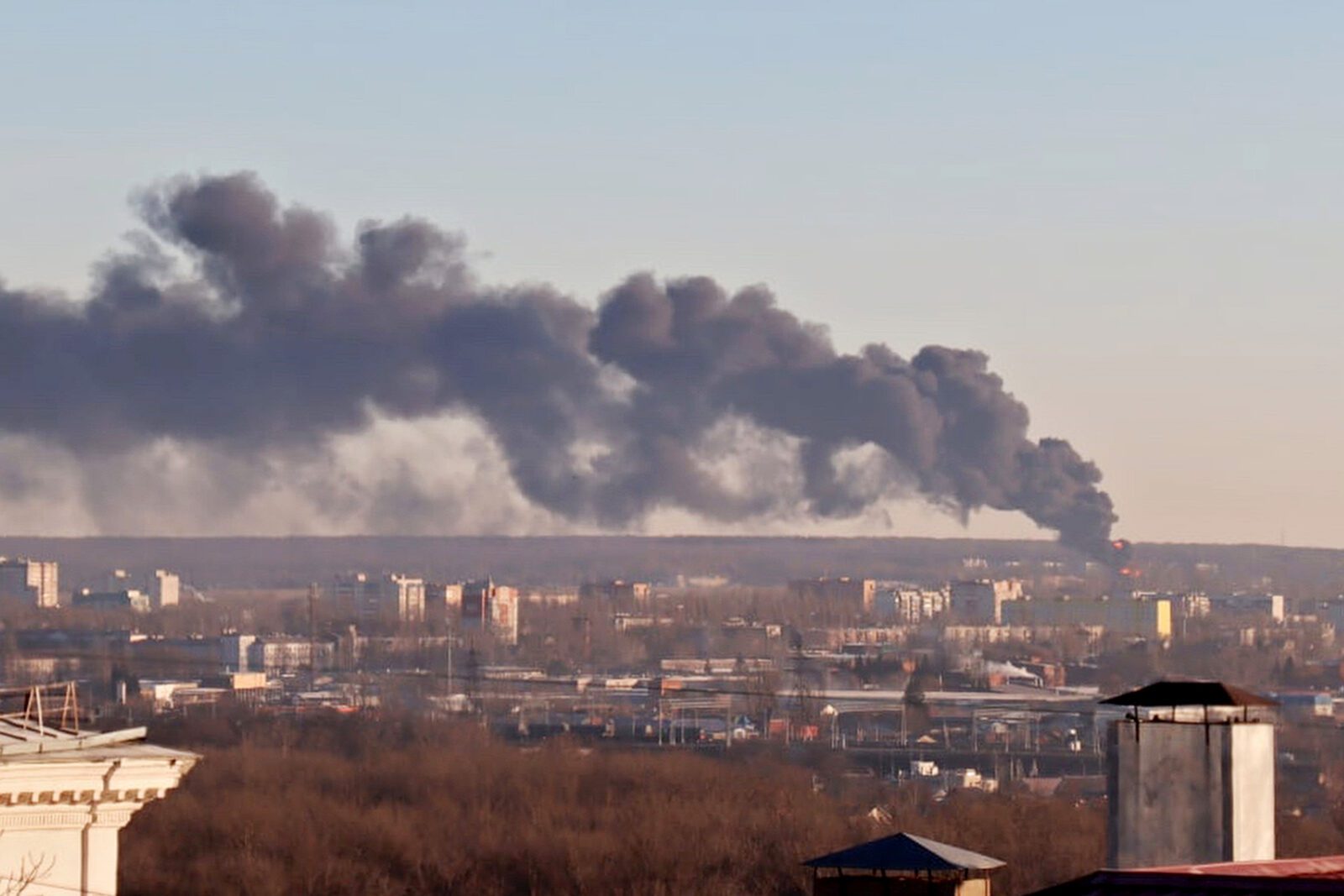(RFI) In recent months, several Russian military bases, fuel and ammunition depots have been targeted by drone strikes attributed by Moscow to Ukrainian forces. On Tuesday (6), an airfield in the Kursk region on the border with Ukraine was hit.
So far, Kiev has not claimed responsibility for the attacks. But for Russia, there is no doubt about their aim: “to disable Russian long-range aircraft. These aircraft have been used in the bombing of energy infrastructure on Ukrainian territory.
According to the governor of Kursk, Roman Starovoit, “an oil storage tank caught fire” on Tuesday, but there were no casualties. He did not specify where the drone came from, but the region is near the border with Ukraine.
On Monday (5), two Russian air bases located hundreds of kilometers from Ukrainian territory had already been targeted by drones, Moscow officials said. The long distance traveled by the equipment makes Russian authorities fear the expansion of the strategy to more distant regions in Russia.
According to Russia’s defense ministry, the Soviet-designed Ukrainian drones were intercepted by Russian anti-aircraft defense while targeting the Diagilevo base in the Ryazan region and the Enguels base in the Saratov region. Three Russian soldiers were killed and four were wounded in the explosions. Two Russian aircraft were also damaged.
Kremlin spokesman Dmitry Peskov on Tuesday described these drone attacks as a “dangerous factor,” adding that “the necessary measures are being taken.” According to Peskov, Russian President Vladimir Putin also met with his Security Council today to discuss issues related to “internal security.”

Repairing energy infrastructure
In parallel, Ukraine is working on Tuesday to restore power grids after the latest Russian attacks. The bombings caused blackouts across the country at a time of bitter cold.
Of the 70 missiles launched by Moscow on Monday, “most” were shot down, Ukrainian President Volodymyr Zelensky said, but the rest hit the country’s already damaged power infrastructure.
New blackouts were recorded across the Ukrainian territory as a consequence of the attacks, the Ukrenergo company reported on Telegram. Its president, Volodimir Kudrytskyi, said that “there is no doubt that the Russian military consulted engineers in the energy sector for the attack.” “Our teams will work to repair the system,” he added.
After months of Russian bombing, nearly half of Ukraine’s power systems have been destroyed, leaving residents in the dark and cold for hours at a time of sub-zero temperatures.
Russian oil price cap
The attacks came after Russia rejected the Western-imposed cap on the price of the country’s barrel of oil, while warning that the measure will not affect the offensive in Ukraine. The $60 a barrel cap set by the European Union (EU), G7, and Australia is intended to affect Russian revenues, but does not interfere with Moscow’s supply to the world market. Moreover, the current market price of a barrel of Russian oil is $65, just above the ceiling, suggesting that the measure will have little short-term impact.
This is the latest in a series of measures by Western countries against Russia, the world’s second largest oil exporter, since Putin ordered the invasion of Ukraine last February 24.
The EU also announced an embargo on maritime deliveries of Russian oil, which went into effect on Monday. The measure will prevent maritime shipments of Russian oil to the EU, which account for two-thirds of the bloc’s oil imports from Russia.
*** Translated by the DEFCONPress FYI Team ***
